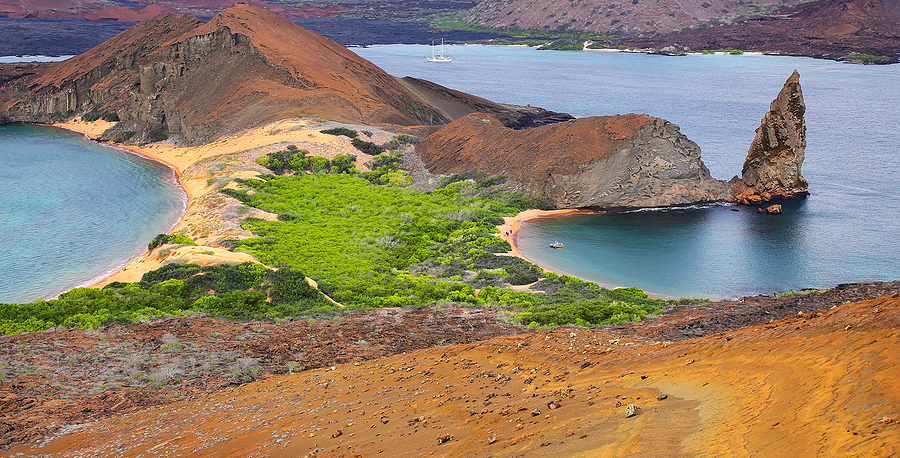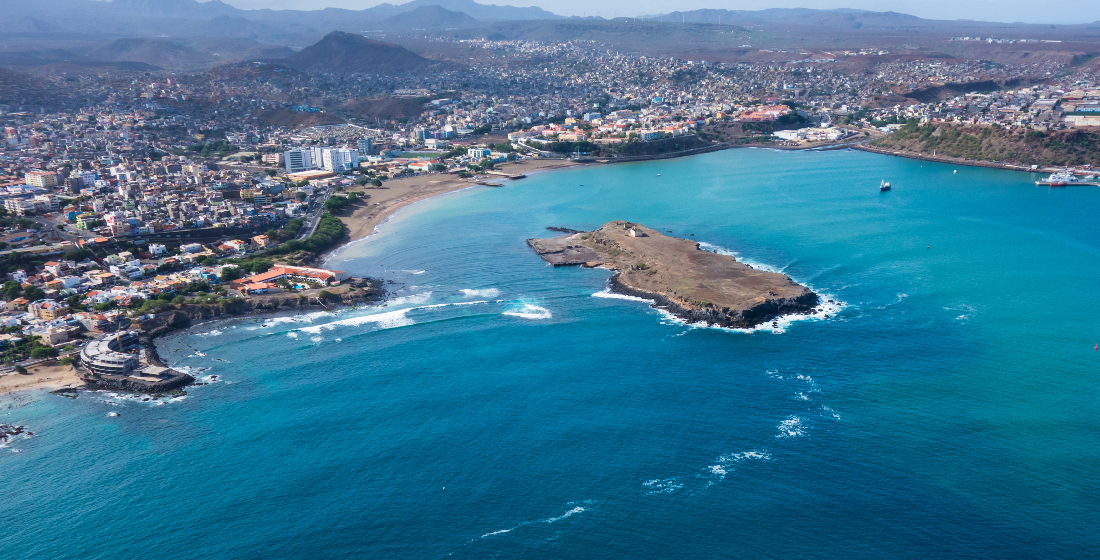Darwin would be chuffed
Ecuador’s record volume Galapagos deal has busted concerns about repeatability and scalability of debt-for-nature swaps.

Despite its recent financial woes and takeover by UBS, Credit Suisse appears to be continuing to carve itself a repeat-business niche in debt-for-nature swaps. Not only has it lead managed on Ecuador’s Galapagos Bond – closed this week and the biggest such deal to date – it also co-lead arranged the Barbados deal last year, and that deal’s precursor for Belize in 2021.
The Ecuador debt conversion draws heavily on the template established by the other two – but there are significant differences.
The $364 million Belize deal enabled the Belize government to buy back all of its 2034 Eurobonds at a 45% haircut on the principal. But there were concerns at the time about repeatability and scalability of the template given it relied so heavily on Belize’s existing bondholders accepting such a major haircut. The offering was, at its simplest, take a cash payment upfront that puts a floor to losses now, transfers risk to a new set of bondholders and unlocks cash for marine protection, or be exposed to uncertain and potentially larger losses down the road. Given the unsustainability of Belize’s debt at the time, the first option found appetite.
The Barbados deal in 2022 put the concerns about replication to bed, but that was in large part because there was no hefty discounting. The key driver was not reducing debt levels but cost of debt efficiency.
Structured as a $146.5 million dual currency blue loan partially funded by blue bonds, the deal refinanced a portion of Barbados’ sovereign debt at 200bp-plus less than the 6.5% and 8% the country was paying on its outstanding 2029 dollar denominated Eurobonds and 2043 locally denominated Series E respectively. The debt-for-nature swap was, as the Barbados government said at the time, “the most efficient of its type to date, in terms of the cash flow savings generated for marine conservation relative to the amount of debt being treated.”
The Ecuador deal is arguably a bit of both previous transactions – but perhaps most significantly demonstrates unprecedented scale, both in the amount of debt treated and the size of haircut existing creditors are willing to take when a country’s sovereign bond prices are slumping and show no signs of recovering any time soon.
The Ecuador conversion exchanges $1.628 billion in Ecuadorian government bonds for a $656 million impact loan maturing in 2041 that is funded by a blue bond of the same amount and tenor, all of which is requisite upon Ecuador facilitating a conservation programme in the Galapagos Islands.
The fixed rate term loan to Ecuador – a $656 million facility arranged by Credit Suisse, with BNY Mellon as facility agent and Clifford Chance as legal counsel – is covered by US Development Finance Corporation (DFC) political risk insurance and an $85 million partial guarantee from the Inter-American Development Bank that could, if needed, cover the first six quarterly interest payments. A group of 11 private insurers – which includes AXA XL, Fidelis MGU and Chubb – is also providing more than 50% reinsurance to facilitate the transaction.
The deal is structured via special purpose vehicle GPS Blue Financing Designated Activity Company (GPS Blue), which acts as both lender to Ecuador for the term loan and issuer of the blue bond. The payments to be made under the term facility by Ecuador to the lender are used as reference for the separate payments to be made by the lender, in its capacity as issuer, under the blue bond. The 2041 blue bond (Galapagos Bond) carries a 5.645% coupon.
The overall deal is very heavily discounted – around 60%. Under the cash tender offer to existing bondholders conducted by Credit Suisse just over $1 billion face value of Ecuador's 2035 bond were bought at a price of 38.5 cents on the dollar, $202 million of a 2030 note at 53.25 cents on the dollar and $420 million of a 2040 bond at 35.5 cents on the dollar. Consequently, the debt conversion will generate savings to the Ecuadorian government – which was advised by Lazard and Dentons – of $1.126 billion through 2041 in principal and interest repayments.
In return for the debt-for-nature swap, Ecuador will direct an estimated $323 million into marine conservation in the Galapagos Islands over the next 18.5 years, including approximately $12.05 million of new funding annually and around $5.41 million annually to capitalise an endowment for the Galapagos Life Fund (GLF).
The GLF is a non-profit established to direct the marine conservation funding to the Galapagos National Park Service and efforts to manage, monitor, and enforce marine protections for the waters surrounding the Galapagos Islands. The fund is supported by Climate Fund Managers (CFM) – via its marine ecosystem manager Oceans Finance Company (OFC) – and the Pew Bertarelli Ocean Legacy. Together they provided the early-stage capital and established the GLF with Ecuador. Aqua Blue Investments provided additional technical assistance to Pew Bertarelli Ocean Legacy to develop the GLF and the project.
The endowment, which will be a permanent source of funding for the GLF to support marine conservation projects beyond the tenor of the transaction, is estimated to grow to more than $227 million by 2041. Combined, the debt conversion and endowment will generate more than $450 million for marine conservation in the Galapagos.
The Uxolo perspective
The numbers speak for themselves – $1.126 billion of savings in principal and interest repayments for Ecuador and $450 million going into Galapagos conservation. The deal is not going to resolve Ecuador’s political and financial turmoil, but it will help. And we can be certain that this kind of financial engineering would have had a very eminent fan. Charles Darwin – for whom the uniqueness of certain species on the Galapagos inspired the Theory of Evolution – once said: “If the misery of the poor be caused not by the laws of nature, but by our institutions, great is the sin.” It seems some of our institutions have done the right thing with this deal and more of the same for other distressed debt nations facing ecological threats can only be a good thing.





